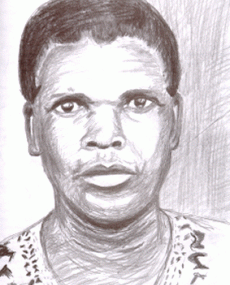
Pokela was one of the Africanist in the African National Congress Youth League who broke off to found Pan Africanist Congress in 1959. In 1966 he was sentenced to thirteen years imprisonment in Robben Island for the activities of PAC armed wing Poqo (later APLA) in Eastern Cape in 1963. While in prison Pokela attempted tirelessly to unite PAC factions on Robben Island.
After his release in 1980, Pokela went into exile where he was elected to replace Vusumuzi Make who voluntarily stepped down from the leadership in favour of Pokela in 1981. Pokela was viewed in the PAC circles as the “only person of stature available who had not been tarnished by the earlier internecine squabbles which characterised the leadership of the deposed and expelled former chairman Potlako Leballo”.
After assuming leadership, Pokela tried to reunite fragmented PAC in exile, the work he had tried to do while in Robben Island. He started off by engaging the Azanian People’s Revolutionary Party (APRP), a small group formed by members expelled by Leballo to rejoin the PAC, which they did in 1982.
He made a controversial remark on his visit to Iraq during Iraq-Iran war when he declared PAC support to Iraq. This was in sharp contradiction with PAC position which was not to take side in any conflict involving members of the Non-Aligned Movement. Pokela was criticised for his remark by PAC members among others Henry Isaacs and Mike Muendane. Iraq later sent 50,000 dollars to the PAC.
In June 1985 Pokela died in Parirenyatwa Hospital in Zimbabwe after a short illness. He was given a state funeral by the Zimbabwean government as an honour for his contribution in liberation struggle. He was buried by Dr. Stanley Mogoba, who at the time was the bishop of the Methodist church of Southern Africa.